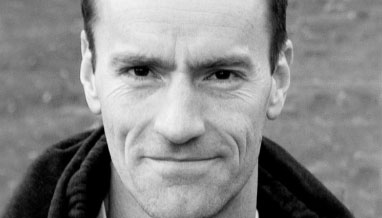Spotlight on Dr. Duane Wesemann, MD, PhD
By Katie E. Golden, MD

I recently had the chance to talk with Dr. Duane Wesemann. He is an Associate Professor at Harvard Medical School, and a Principal investigator in the Division of Rheumatology, Immunology and Allergy at the Brigham and Women’s Hospital. He has a background in immunology, and is particularly interested in understanding the mechanisms of B cell development and selectivity, and how that influences immune fitness and tolerance. This has led to a particular interest in the role of the microbiome in this process. We chatted about how he first became fascinated with the B cell, the clinical implications of his basic science research, and the allergy field’s current doctrine on how to avoid the development of food allergies (early exposure to typical allergy-inducing foods seems to be the current theory on the best way to reduce the risk).
Katie: Tell us a little bit about your research interests and how it relates to the microbiome.
Duane: I have always been interested in our immune system, how it sees the world, its complex response to the environment around us. Early in my career, I had a particular interest in B cell development and how the repertoire of antibodies is shaped. Antibody genes are somatically assembled in early B lineage cells. This process generates a lot of self-reactive antibody specificities that are later selected out by various tolerance filters as B cells develop. There are still a lot of unanswered questions about the behavior of these cells through the repertoire selection processes. Right now, we are studying how gut content expands B cell receptor recognition capacity and influences the diversity of the antibody repertoire. The microbiota are known to activate certain B cells that express an antibody specific for the relevant microbes. We have found that, in addition to activating B cells directly in the gut, we are now finding that microbial symbionts influence early B cell development and antibody repertoire selection in the bone marrow.
Katie: What are the potential clinical implications of your work?
Duane: We are ultimately trying to get a better understanding of the factors that lead to immune fitness and tolerance in general. Our diverse antibody repertoire can help protect us against infection, but can also lead to inflammation and autoimmune disease. We are studying how exposure to certain intestinal microbes influences the development of B cells and the antibody repertoire they express. We think that this may be one of the mechanisms how microbial symbionts may influence the likelihood that pathogens are recognized by the immune system. Microbial symbionts may also influence the prevalence of self-reactive antibodies. This has important implications in health conditions where antibody production is relevant — for example, in vaccinology, as we try to understand how we can recruit and develop rare but potentially important B cells.
Katie: How did you first become interested in the immunology field?
Duane: I remember as an undergraduate student I took an immunology class, my professor was standing in front of the class and explaining the amazing nature of the immune system — how it continuously makes key, complicated decisions to determine friend versus foe. It was inspiring. Later in my career, I worked with Max Cooper, who essentially discovered the B cell. There is still a lot of mystery surrounding these cells and how they work. As microbiome research was gaining traction and attention, I naturally became interested in the role of the microbiome in B cell development.
Katie: What do you do for fun?
Duane: Well, let’s see. I am a pilot. I got my license back when I was 17. I washed dishes in an Italian restaurant to raise money for the lessons. I was kind of a nerd in high school so I knew I needed something to try to be cool. (He laughs). So I got my pilot’s license. Needless to say, it didn’t work as well as I had planned — people in general were spooked to fly with a teenager. I still keep my license current, though, and it has been fun to now take my kids with me sometimes.
I also got into long distance running lately — it clears the head. (In addition to running his lab, seeing patients in clinic, and consulting for OpenBiome, Duane and his wife Sandra raise 4 kids, ages 9 to 18 years old. He ran the 2019 Boston Marathon in under 3 hours).

